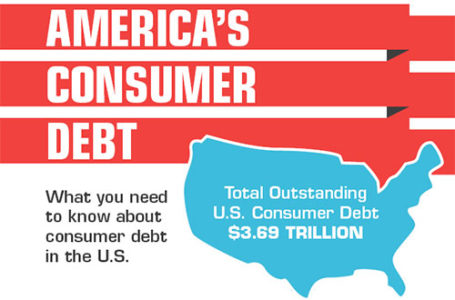Finding the right services and resources to achieve the credit score you want.
Whether you’ve faced some credit score damage from financial hardship or you simply want to achieve a better score, there are some key services and resources that making getting good credit easier. Without these tools, you’re basically leaving your credit to guesswork! You can assume that you’re doing the right things to maintain a good score, but you don’t want to face any surprises the next time you apply for a loan or credit card.
Good credit is a combination of two things
There are two key parts to credit that you need to be aware of:
- Your credit report
- Your credit score
Every consumer that uses credit has a consumer credit report. This contains a history of your life as a credit user. Lenders review your credit report in order to see how you’ve handled credit in the past. If your report contains things like missed payments or collection accounts, then lenders will be less likely to approve you for a loan or credit card.
Your credit score is a three-digit number that tells lenders how much of a credit risk you are as a borrower. A low credit score means you’re a high-risk borrower that’s more likely to default. A high score means you’re more likely to pay your debts back on time. Credit scores are calculated based on the information contained in your credit report.
In order to look good to creditors, you need to have a clean credit report that’s free of negative information and a high credit score. These two things together ensure that you won’t have any problems getting new loans or credit cards. They also help ensure you get the lowest interest rates and best terms possible.
Reviewing your credit report
Credit reports are maintained by the three major credit bureaus in the U.S.
- Experian
- Equifax
- TransUnion
So, in fact, every consumer has three versions of their credit report – one published by each bureau. And while you might expect that the credit bureaus would maintain accurate information about your credit history, errors are more common that you might think. The FTC conducted a study that found:
- 1 in 4 credit reports contain an error
- 1 in 5 reports contain are error that would hurt the consumer’s credit score
- 1 in 20 have an error that would decrease the person’s score by at least 25 points
This means that it’s up to you to review your credit reports regularly to make sure they’re error free. If you find errors, you have a right to dispute them to have the mistakes corrected or removed. By law, if a creditor cannot verify an item that you dispute, it must be removed.
Federal law also guarantees you the right to a free copy of your credit report once every twelve months. You can go to annualcreditreport.com to download a free copy of your credit report from each of the three credit bureaus each year.
You should review your reports to check for:
- Negative information that’s damage your score
- Accounts you don’t recognize, which could be a sign of ID theft
- Mistakes and errors in any credit information
What to do if you find credit report errors
Although you can make disputes to the credit bureaus yourself if you find errors on your credit report, it’s usually recommend that you enlist the help of a professional. Federal law gives you the right to retain legal representation to make disputes on your behalf. This is known as a credit repair service.
Reputable credit repair companies have state-licensed attorneys on staff who you can authorize to make disputes on your behalf. They do all the legwork for you. They’re also experienced at getting results to have negative information removed. In other words, your chances to have an erroneous negative item removed are greatly increased with professional help.
Improving your credit score
It’s crucial to note that your free annual credit reports will never come with a credit score. If you want to know your score, then you need a credit monitoring tool. This type of tool allows you to track changes in your credit score and even estimate the impact of taking certain actions on your credit. In addition, these monitoring tools also alert you when there’s been a change in your credit report, so you’re always on top of what’s happening with your credit.
Although you can take action to build credit without knowing your exact score, knowledge is power in this case. You want to know your score, so you don’t face any surprises the next time you go to apply for a loan. Credit monitoring tools also serve as an extra line of protections against identity theft. So, it’s an all-around good resource to have when you’re working to achieve and maintain good credit.

